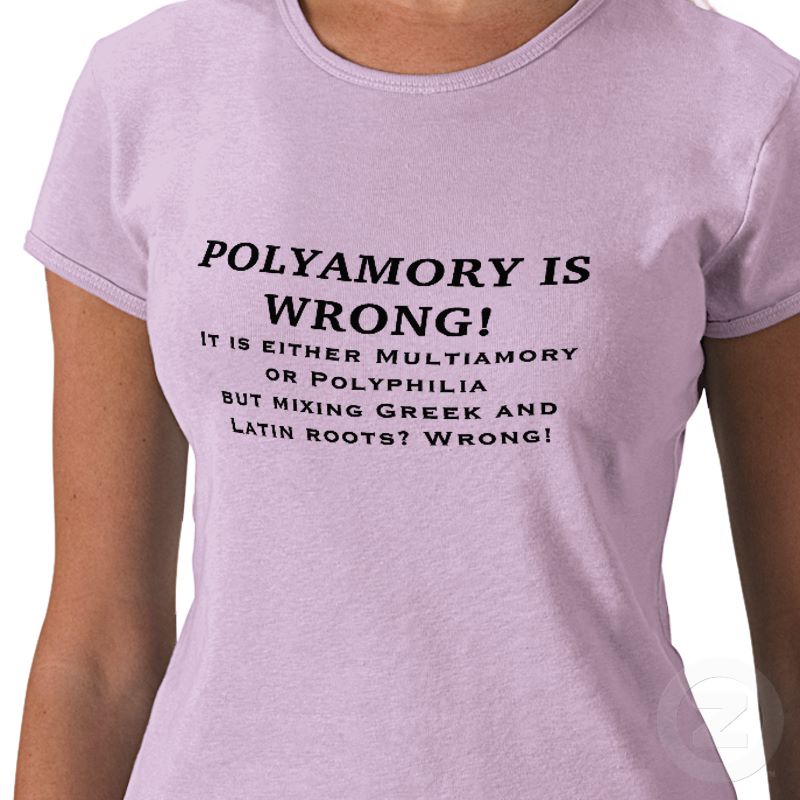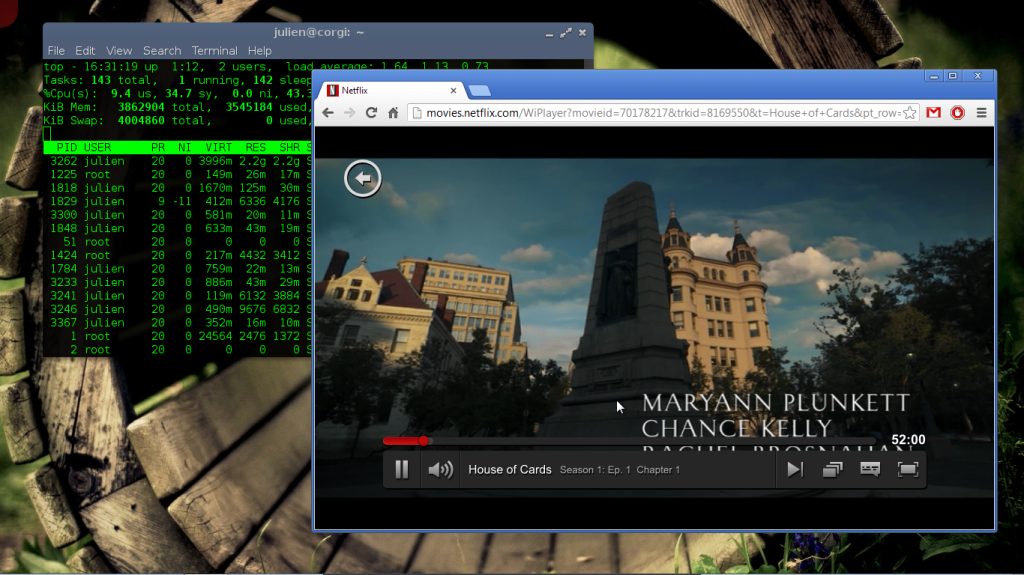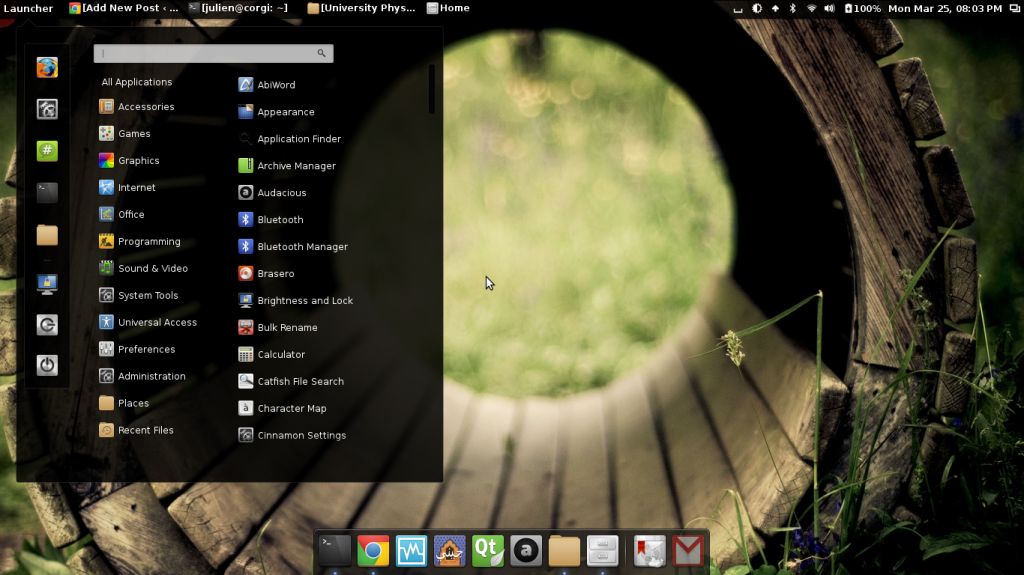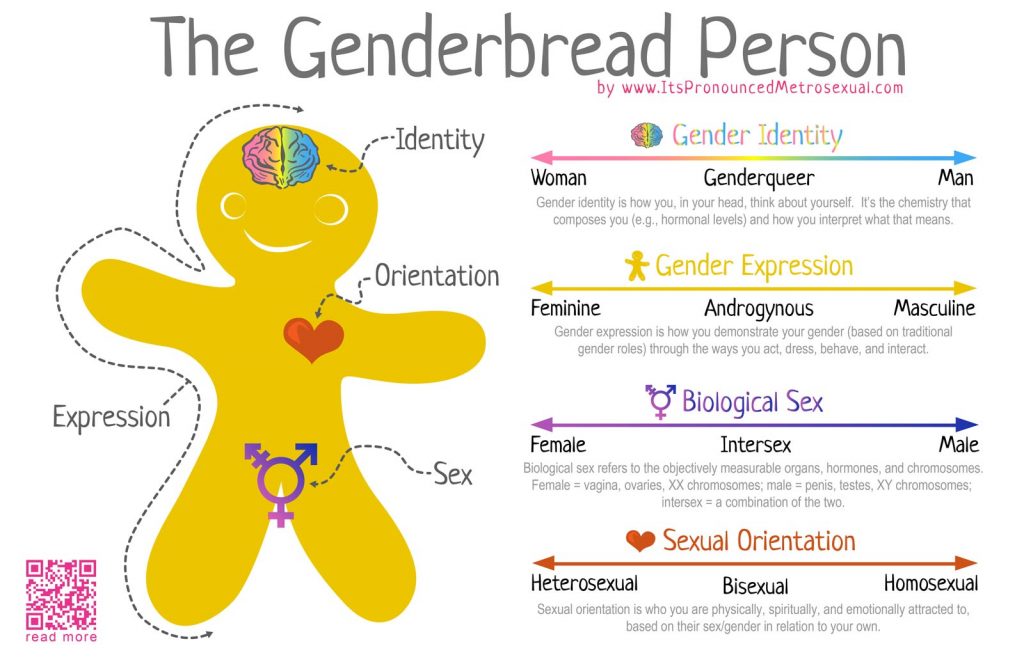Fluffy White Bread
I was tasked with making my loafs of bread more like Wonderbread. In other words: sweeter and more fluffy. After some experimenting, I found success with one recipe. I then tried again with a veganized version, and it worked just as well. So I present to you both editions.
Regular Version:
- 3 Cup Flour
- 1 Cup Milk
- 1/4 Cup Sugar
- 1.5 Eggs
- 2.5 Tbsp Butter
- 2.5 Tsp Yeast
- 3/4 Tsp Salt
Vegan Version:
- 3 Cups Flour
- 1 Cup Almond/Soy/Rice Milk
- 1/4 Cup Sugar
- 1/3 Cup Unsweetened Apple Sauce
- 2.5 Tbsp Vegan Butter (Earth Balance)
- 2.5 Tsp Yeast
- 3/4 Tsp Salt
Note: My machine’s bread cycle lasts 3 hours. That’s too long for this recipe. I usually turn the machine off at 2h30 hours if not before. If I want to brown the bread a bit more, I’ll leave the loaf in for a few more minutes after the machine is turned off, then take it out.
Vegan Gluten-Free Maple Doughnuts
I also discovered a good recipe for doughnuts, which I made gluten-free. The doughnuts were more frail than those with the gluten to bind them together, but careful handling and a bit longer cooking time made them just as great.
Doughnuts:
- 1 1/4 Cup Flour
- 1/4 Cup Sugar
- 1/2 Tsp Salt
- 1/2 Tsp Baking Powder
- 1/4 Tsp Baking Soda
- 1/4 Tsp Nutmeg
- 2/3 Cup Vegan Milk
- 1 Tbsp Vinegar
- 1/4 Cup Apple Sauce
- 1/2 Tsp Vanilla Extract
Glaze:
- 3/4 Cup Icing Sugar
- 2 Tbsp Maple Syrup
- 2 Tsp Maple Extract
Going Gluten-Free:
Substitute the flour for all-purpose gluten-free flour, like that made by Red Mill. Also add 1 Tsp of Xanthan Gum.
Instructions:
- Set the oven to 350°C.
- Mix the milk and vinegar together in a bowl. Set aside.
- Mix all the dry ingredients for the doughnut.
- In the bowl with the liquids, mix in the apple sauce and vanilla extract.
- Combine the liquids and solids together. Do not over-mix.
- Pour into a doughnut pan and bake for 10-12 minutes. If you go gluten-free leave for a bit longer.
- Pull out the doughnuts and let cool. While they cool, mix the ingredients for the glaze together.
- You can glaze the cooled doughnuts by dipping them in the bowl with the prepared glaze.
Vegan Gluten-Free Cheesecake
 This was my second attempt at a vegan cheesecake, and with an entirely different recipe. I wanted something that was easy to put together, and so was weary of going for something that involved crunching cashews or whatnot. I ended up finding it. I used a separate recipe for the crust.
This was my second attempt at a vegan cheesecake, and with an entirely different recipe. I wanted something that was easy to put together, and so was weary of going for something that involved crunching cashews or whatnot. I ended up finding it. I used a separate recipe for the crust.
The end result was good, albeit a touch runny. I think it’s because I put 4 tablespoons of lemon instead of 4 teaspoons. Also, the crust was very tough – perhaps another recipe or using this one differently would have been better. But overall it was a success.
Crust:
- 1 Cup Gluten-Free All-Purpose Flour
- 1/3 Cup Icing Sugar
- 1/2 Cup Vegan Butter (Earth Balance)
- Pinch Salt
Filling:
- 2 Packages Cream Cheese (Tofutti)
- 2/3 Cup Sugar
- 1/4 Cup Water
- 1 Tbsp Extra-Firm Tofu
- 4 Tsp Lemon Juice
- 1/2 Tsp Salt
Instructions:
- Butter the bottom of a pie-sized pan.
- Mix the ingredients for the crust together until it becomes dough.
- Place the dough on the bottom of the pan to form the crust. Use your fingers to ensure even distribution.
- Poke holes in the crust with a fork.
- Place the crust in the freezer for 15 minutes.
- Set the oven to 425°C.
- Bake for 13-15 minutes until golden brown and allow to cool.
- Lower the oven temperature to 350°C.
- Blend the cream cheese together until it softens.
- Add the sugar, salt, tofu, water and lemon juice.
- Blend until uniform. Add the contents to the pan containing the cooled crust.
- Bake for 45 minutes or until the top is golden brown.
- Let it cool and then refrigerate it.














